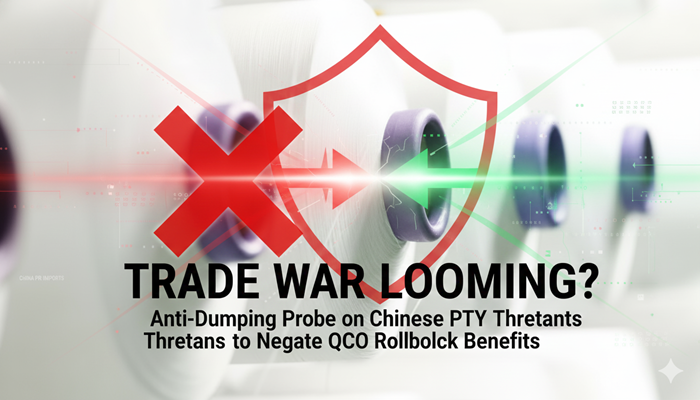Indonesia is encouraging its textile industry to be environment-friendly, since it’s necessary for business sustainability. The United States and Europe have strict standards and products containing hazardous chemicals are rejected.
Environment-friendly industries fall into several categories. First the industry does not pollute the environment of water, air, and soil. Second, the raw material can be recycled, re-used and is re-degradable. Third, the products used in production of finished products must be environmentally friendly. In addition, efficiency and effectiveness factor in energy use are also important factors.
The textile sector in Indonesia is expected to grow seven per cent this year. The country is looking to a relaxation of import duties in the US for goods exported from Indonesia.
In addition, rules for imports of textile and textile products have been tightened. And results are visible. Import of fabrics as a raw material for garments fell by 33 per cent in the first quarter of 2017. The aim is to discourage fabric imports to push up domestic fabric production. The textile and garment industry is one of Indonesia’s oldest industries and the country makes up about two per cent of the global textile market. Although Indonesia produces cotton, textile manufacturers prefer to import cotton because the quality of foreign cotton is much higher.
Indonesia cleans up its textile sector to boost exports
- 1
- 2
- 3
- 4
- 5
- 6
- 7
- 8
- 9
- 10
Profit with Purpose: Inside the 35% margin boom in upcycled fashion wholesale
The secondhand wholesale sector, once seen as the back end of fashion, is now leading a quiet revolution, one that... Read more
Inside Lululemon’s toughest year, tariffs, trend misses, and the fight to reigni…
For over a decade, Lululemon Athletica embodied everything the premium athleisure revolution stood for technical mastery, community-driven branding, and an... Read more
India's ‘Technical Textile’ sector 'Important for the World,' says Techtextil Di…
India is emerging as a global powerhouse in technical textiles, a growth recognized by the organizers of the world's leading... Read more
Anti-Dumping probe on Chinese PTY threatens to negate QCO rollback benefits
Just days after the Indian government withdrew Quality Control Orders (QCOs) on Polyester Textured Yarn (PTY) and other textile inputs... Read more
India's new ‘Labour Codes’ weave global compliance into apparel exports
The full implementation of India's four consolidated Labour Codes (The Code on Wages, The Industrial Relations Code, The Code on... Read more
Cotton’s fragile comeback, how the US-China truce is redrawing global fiber map
When Presidents Donald Trump and Xi Jinping announced a fragile peace in Busan last week, most of the attention in... Read more
Viscose freed, industry revived as India’s raw material reforms trigger a new MM…
In a policy reversal that has given some relief across India’s textile ecosystem, the Ministry of Textiles has officially rescinded... Read more
Q3 Lyst Index reveals a turning point, Saint Laurent rises, Loewe slumps
In a fashion industry often driven by noise viral micro-trends, rapid-fire drops, and overstated marketing the third quarter of 2025... Read more
India Fashions a Greener Future: Global Fibre Summit spotlights $100 bn export g…
The world's largest fibre innovation congress, the Dornbirn Global Fibre Conference (GFC) Asia, made a landmark debut in Mumbai this... Read more
Techtextil India 2025: Mumbai kicks off 10th edition, focussing on sustainable a…
The premier trade fair for technical textiles, non-wovens, and composites, Techtextil India 2025, commenced today, November 19, 2025, at the... Read more












